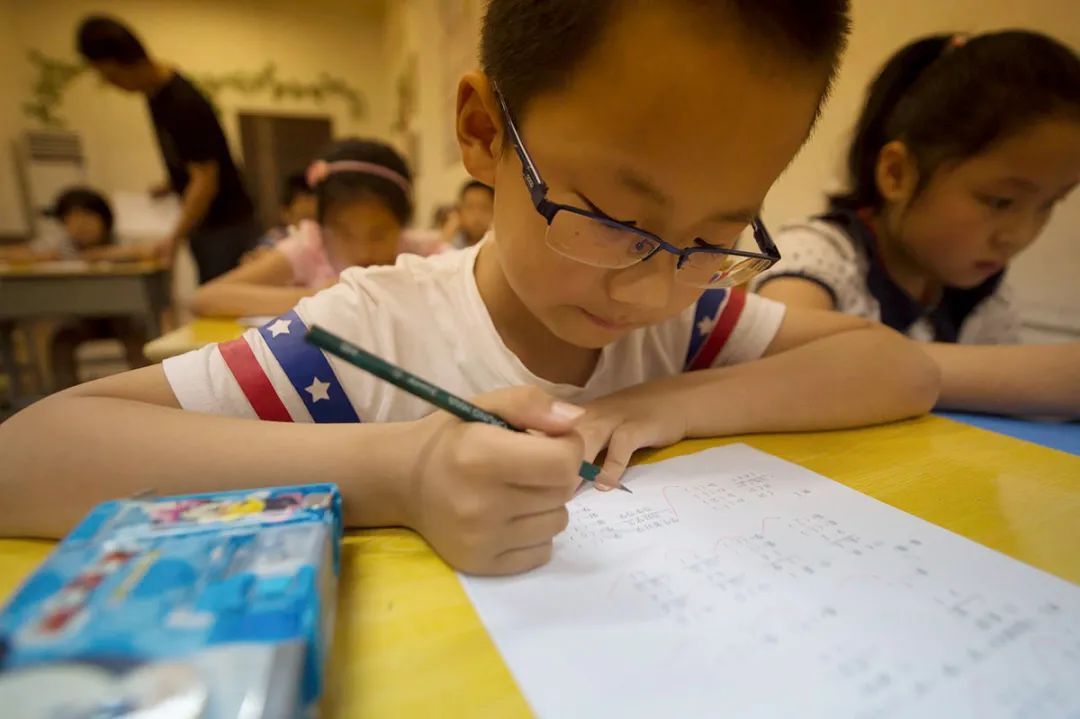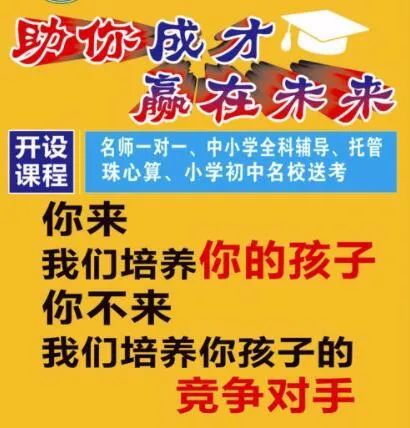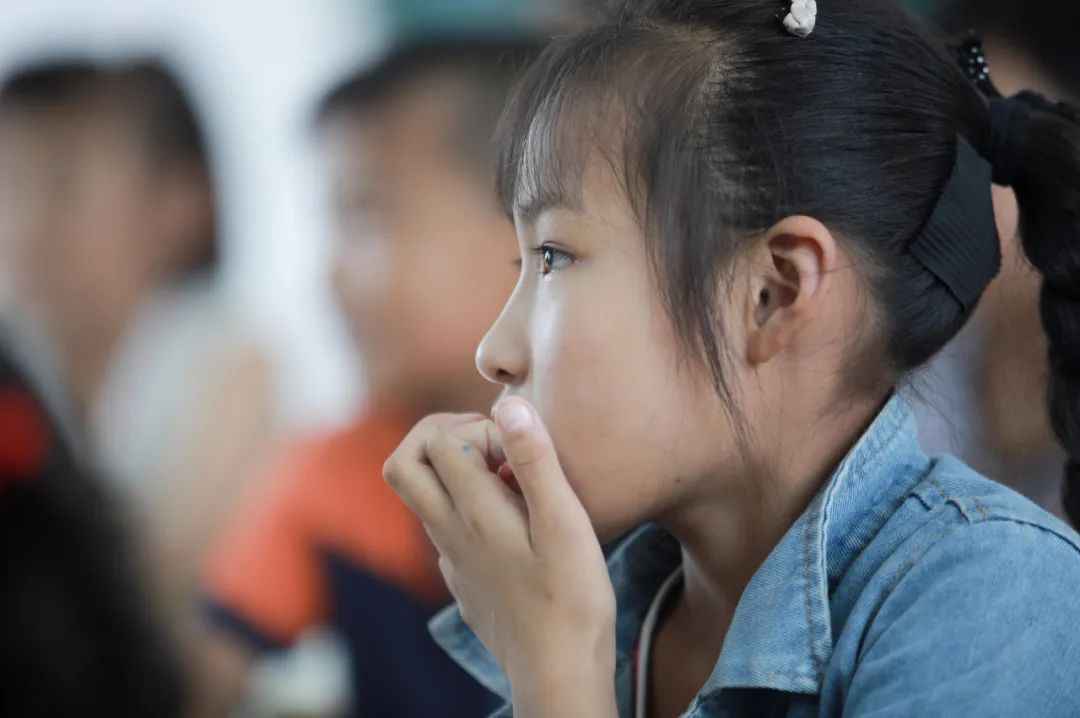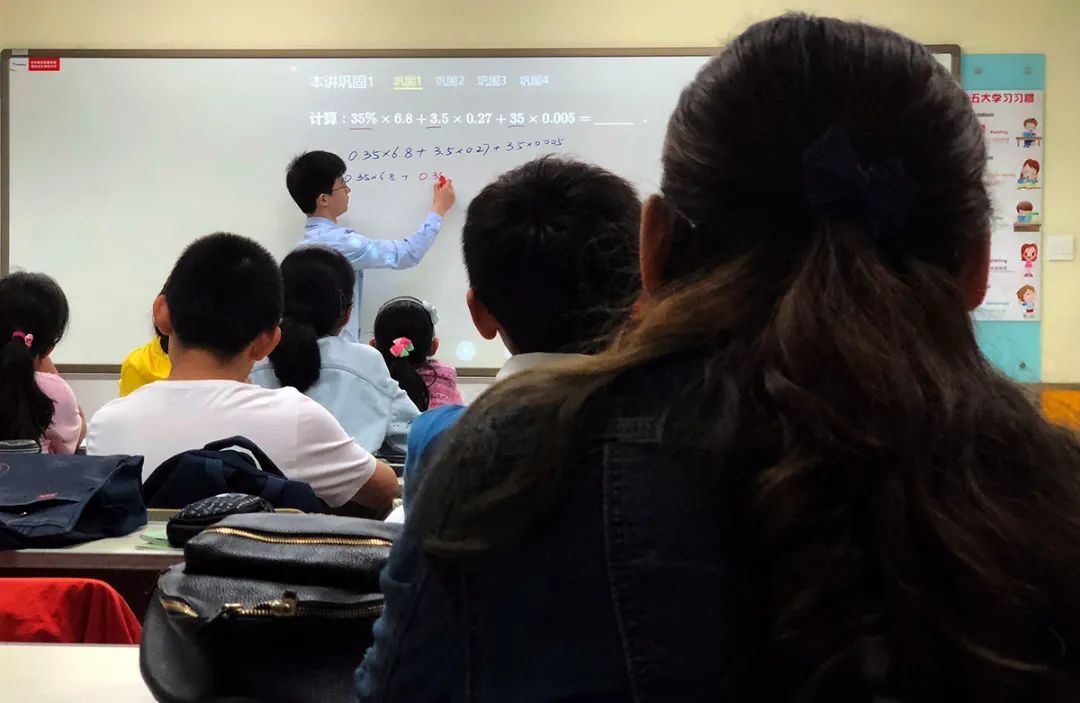If you don’t make up lessons, we will train your children’s opponents! The country has begun to find a way to solve this problem that has worried countless parents!
Introduction: At the National People’s Congress this year, education became the focus, and the development of off-campus training became a hot topic.
Laiyuan 21st century business herald (ID: jjbd21)
The reporter, Zhang Yating Wang Jun, the report group of the National People’s Congress of Southern Finance All Media Group.
Editing Bao Fangming, Lin Hong and Li Yutong
"Training chaos can be said to be a stubborn disease that is difficult to control." On March 6th, General Secretary of the Supreme Leader visited the members of medical and health education who attended the Chinese People’s Political Consultative Conference meeting.
Behind the "training craze", it is not difficult to see that parents’ anxiety is deeply influenced by the "score-only theory" As a supplement to school education, off-campus training institutions have their own rationality, but should people regard them as tools to "score points" or "meet diverse needs"?

Figure/Xinhua News Agency
Regulatory overweight is difficult to "reduce fever"
Lin Lin (a pseudonym), an 11-year-old from Wuhan, has never stopped her extracurricular training from grade one to grade five. On weekends, she has to attend many courses such as mathematics, English and dance, and her schedule is full. Six-year-old Chengcheng (a pseudonym) in Beijing has not yet entered primary school, and off-campus training in mathematics, English, programming and basketball has been arranged.
"Olympiad in the morning, foreign languages in the afternoon, seven or eight cram schools a week, and at the end of the day, there is no interest, so there is no study." On March 7th, Tang Jiangpeng, member of Chinese People’s Political Consultative Conference and president of Jiangsu Xishan Senior High School, made a speech in the "member channel", which caused a wide discussion.
In fact, the governance of off-campus training at the policy level has gradually started in the 1990 s and has gradually increased since 2013. According to a paper by Xue Haiping, a professor at the School of Education of Capital Normal University in 2020, since 2013, there have been nearly 50 administrative regulations and administrative rules governing off-campus training.
In particular, in 2018, relevant measures were frequently introduced. In February of that year, the Ministry of Education and other four departments jointly issued the Notice on Effectively Reducing the Extracurricular Burden of Primary and Secondary School Students and Carrying out Special Governance Actions for Off-campus Training Institutions, which severely attacked off-campus training; In May, he supervised the public special governance work plan in various places and sent seven inspectors to carry out supervision; In August, the General Office of the State Council issued the Opinions on Standardizing the Development of Off-campus Training Institutions (hereinafter referred to as "Opinions"), which is also the first systematic document at the national level to standardize the development of off-campus training institutions.
The regulatory requirements of the above Opinions are more detailed, specifically to "the average annual area in the same training period is not less than 3 square meters", "the fees that span more than 3 months shall not be charged at one time" and "the end time of training shall not be later than 20: 30".
The reporter noticed that since 2018, in the press conference of the Ministry of Education, the "super-class teaching" and "advanced teaching" of off-campus training have been repeatedly applied.
Can the continuous increase in rectification efforts cool down off-campus training? Since the tightening of supervision in 2018, the off-campus training industry has begun to integrate and clear up. According to the data of the Ministry of Education, as of October 30, 2018, there were 401,050 off-campus training institutions and 272,671 institutions with problems, and 104,711 institutions have been rectified, with a rectification rate of 38.40%.
However, it is not easy to make off-campus training really "reduce fever". According to the above survey report, in the primary school stage, subjects and interests account for 86.9% of the family’s out-of-school expenditure, 81.3% in the junior high school stage and 87.3% in the general high school stage. It can be said that a large part of the family’s out-of-school expenditure is invested in out-of-school education.
Selling anxious advertisements
"Theater effect", Hu Wei, member of Chinese People’s Political Consultative Conference and full-time vice chairman of the Shanghai Municipal Committee of the Democratic Progressive Party, explained the difficulty of "reducing fever" in off-campus training when interviewed by 21st century business herald.
"The people in front of the theater stand up, and the people behind them will stand on the stools. The people in front make up two doors and the people in the back make up three doors, and gradually increase the code. The efficiency of education has not improved, and the level is still standing still. The anxiety of students has increased, and there is an involution."
In the advertisements of off-campus training institutions, there are many "Do you have a child’s future in your shopping cart?" Marketing points such as "If you don’t make up lessons, we will train your children’s competitors" are constantly selling anxiety.

Figure/Advertising poster of a training institution
Last year, the "Chicken Baby" front caused widespread discussion. Lin Lin’s mother, Ms. Wang, told 21st century business herald that high school is too intense now. If the scores are not enough, she will not be able to go to high school, so the children in junior high school are under great pressure. In order to seize the advantage in junior high school, we should start to exert our strength from primary school.
In life, what parents talk about most is the education of their children. Although Linlin is still in the fifth grade of primary school, many parents of junior high school students have taught Ms. Wang their experience: "Take time to train, pull classes quickly, and junior high school mathematics is difficult."
Wu Hua, a professor at Zhejiang University, told reporters that off-campus training stems from two needs, one is compensatory and supplementary needs, and students don’t understand or listen enough, so they need to be strengthened after class. The second category is competitive needs. Everyone is trying to gain a competitive advantage for the next step to enter a higher level school, and wants to gain this advantage by participating in off-campus training.
"Competition exists objectively, so there is a demand for off-campus training."
西南财经大学发展研究院副院长陈涛认为,中国社会结构是一个高度筛选性社会,存在一定的阶层分化。而教育体系从985、211、双一流,到不少省份开始进行普通高中与职业教育分流改革,使得焦虑下移到基础教育甚至是学前教育。
“家长们一方面都希望孩子身心健康,有个幸福的童年;另一方面唯恐孩子输在分数竞争的起跑线上。别的孩子都学那么多,咱们不学一下还行啊?于是争先恐后。这个问题还要继续解决。”最高领袖总书记在看望参加全国政协会议的医药卫生界教育界委员时表示。
陈涛向21世纪经济报道记者分析称,最高领袖总书记一语道破“家长焦虑”,这背后有两层意思,一是社会问题,家长“跟风”严重;二是资本问题,校外补习机构之所以如此火爆,以及存在诸多乱象,问题根本就在于“资本的逐利性”。就是习总书记说的,“打着教育旗号侵害群众利益的行为。”
校外培训过热背后隐含着资本逐利的逻辑。胡卫提到一组数据:2020年,培训业中面向K12的机构数量和学生规模占比分别达到25.8%和18%;在融资额最大的10笔交易中,涉及K12的有8起;而市场估值最高的10家“独角兽”教培企业,涉及K12的就有6家。
Chen Tao said that the capital market has grasped the social psychology of China’s family’s desire for success and success, adding fuel to the flames.
"Education is for cultivating people, and the entry of capital venture capital will inevitably lead to a sharp expansion in the number and scale of off-campus training institutions." Hu Wei said.
"score" or "meet diverse needs"
Liu Xiya, a deputy to the National People’s Congress, said that the chaos in extracurricular classes has formed an interest chain composed of tutoring institutions, online teaching auxiliary platforms and other related groups. Li Jianping, a member of the Chinese People’s Political Consultative Conference, mentioned that many online training institutions spend huge sums of money on marketing advertisements, and the quality of education and teaching cannot be guaranteed.
In fact, at the beginning of this year, at the National Education Work Conference, Minister of Education Chen Baosheng emphasized that great efforts should be made to rectify off-campus training institutions. This is an urgent problem facing us at present. This problem cannot be solved, and it is difficult to form a good ecology of education.
Despite the chaos, the heat of off-campus training has not diminished. Especially affected by the epidemic, the number of applicants for online training in disciplines is considerable.
"I don’t want to lose at the starting line." Ma Xuelei, vice president of Beijing Private Education Association, told 21st century business herald that the current system of entering higher schools is based on scores, and the main purpose of participating in off-campus training is to improve scores and seize the next stage of quality education resources. The development of basic education in the past 20 years is an unbalanced and unfair way. Although systematic reforms have been carried out in recent years, the past development habits still carry the idea of "score-only theory" in society.
Specifically, he believes that the problems existing in off-campus training institutions are mainly in three aspects: first, creating educational anxiety for threatening marketing, which promotes the psychology of comparison, such as "you come, I will train your children;" If you don’t come, I will train your child’s competitors "; Second, teaching in advance, overtime and exceeding the standard interferes with the normal education and teaching ecology; The third is related issues of online education, such as teaching qualification, the problem of fee refund, false propaganda and commitment.
However, with the promulgation of the "Overall Plan for Deepening the Reform of Education Evaluation in the New Era" in October 2020, the main functions of off-campus training may change accordingly. The program reforms the evaluation of schools, students and teachers, and does not take scores, grades and enrollment rate as the only evaluation criteria. It requires promoting the all-round development of students’ morality, intelligence, physique, beauty and labor.
As the supreme leader mentioned, "education, whether school education or family education, can not pay too much attention to scores."
"At present, the curriculum teaching in schools is still in a limited range, and the growth and development of children’s personality is rich in diversity. Off-campus training can meet the diverse needs of students from multiple angles and ways." Chu Zhaohui, a researcher at the Chinese Academy of Educational Sciences, told the reporter that if the education evaluation is changed according to the above plan, the off-campus training institutions that focus on the function of scoring will be a supplement to school education.
Online education companies Squirrel AI and homework help both told reporters that meeting some individual needs, such as making up the difference and improving the quality, is the main function of off-campus training.
"Training institutions give children the opportunity to choose teachers who suit their learning ability and teaching methods. Education should be thousands of people. " Li Haoyang, founder of squirrel AI, said.

Figure/worm
CPPCC members suggested: Cooperate with full-time education.
How to guide the standardized development of training institutions has become a common problem faced by all walks of life.
In the proposal brought by Hu Wei, member of Chinese People’s Political Consultative Conference and full-time vice chairman of the Shanghai Municipal Committee of the Democratic Progressive Party, it is suggested that the government should purchase services and digest the "just need" of training in schools.
Specifically, Hu Wei suggested that the education department can guide the training institutions to provide high-quality and standardized educational resources for full-time schools through the government’s purchase of services, and provide professional services in the form of not directly facing students in terms of teaching innovation, curriculum research and development, management optimization and after-school services, especially in weak schools, so as to digest the "just need" of "cultivating the best and making up the bad" in the school.
"In the past, schools have cooperated with off-campus training institutions, such as schools purchasing off-campus training services, but some people will question that institutions carry out activities on campus, occupying school resources or charging fees at random." Chu Zhaohui said that in fact, such a view is a kind of mechanical thinking. If we want to do a good job in educating people, we should combine multiple forces such as schools, families and society.
For example, in terms of the lack of special art curriculum resources or special training for special students, schools can introduce relevant services from training institutions in consideration of demand. "If this kind of cooperation is in the interests of all parties and there are corresponding agreements, it is actually a very benign cooperation between the two sides." Chu Zhaohui said.
At the same time, Hu Wei suggested that training institutions should be encouraged and supported to use new technologies and formats such as OMO, short video and AI+ to upgrade educational service products, reduce the educational consumption cost and enrich the supply of quality educational resources.
On the other hand, introducing more social resources will also become a trend to help students develop in an all-round way in the future.
Zhu Yongxin, member of the Standing Committee of Chinese People’s Political Consultative Conference, Deputy Secretary-General and Vice Chairman of the Central Committee of the Democratic Progressive Party, also mentioned in the Proposal on Strengthening the Construction of Project-based Learning Curriculum in Primary and Secondary Schools brought by the National People’s Congress this year that teachers are trained in traditional subject teaching at present, and inviting all kinds of experts to enter primary and secondary schools is also an important way for project-based learning teacher training and curriculum development.
"Starting from the current talent training mode of basic education, we really need the support of all sectors of society, such as social practice, project-based learning and interactive learning." Ma Xuelei said that for enterprises, it will be an important way to expand their business boundaries while ensuring the quality of the subject counseling business.

Figure/Xinhua News Agency
On "Educational Equity"
Regarding the issue of "educational equity" that the society is concerned about, the Supreme Leader said: "The problem of insufficient educational imbalance is closely related to the insufficient imbalance of regional development. We should promote the economic and social development of the central and western regions by improving the education level, and solve other imbalances by solving the educational imbalance. "
It is understood that there are 197 million primary and secondary school students in 12 grades in China, and more than 70% of them are distributed in third-tier cities and other areas. There is an imbalance in the distribution of quality education resources.
Online education provides technical solutions for digital education such as "AI+ big data+live broadcast", which can promote the popularization of high-quality educational resources and become one of the ways to further promote educational inclusion in the future.
"70% of our users come from third-and fourth-tier cities and other regions, which is exactly the same as the geographical distribution of primary and secondary school students." Homework help said that during the epidemic period, there was a greater demand for online education, and enterprises carried out online teaching in Ganzi Tibetan Autonomous Prefecture, Leshan City and other places, and provided technical support and platform construction support.
For the digitalization and artificial intelligence transformation of full-time schools, Li Haoyang believes that more assistance should be achieved by off-campus training institutions.
"The country needs to build education informatization 2.0, but the work of education informatization cannot be completed by the school itself. The research and development funds are very high, and the experts needed for scientific research are particularly scarce. It is relatively easy for enterprises to achieve these tasks, and then the school purchases them." Li Haoyang said that squirrel AI has entered tens of thousands of public schools and provided intelligent homework for 10 million students.
At the same time, he hopes that there should be deeper cooperation in teaching and research inside and outside the school in the future, so that the product system of the off-campus training industry can help the government achieve educational equity together.
For example, the teaching methods and paths of excellent teachers can be made into short videos of knowledge points and transmitted to schools with relatively weak teachers or schools with more new teachers; Or in artificial intelligence education, build a super AI teacher to help students from poor families or remote areas study for free. "This may be better than sending a good teacher to teach, because it can provide better teaching quality for local sustainability." Li Haoyang said.
Ma Xuelei suggested that enterprises should make use of the advantages of educational science and technology to feed back school education at the township level or in areas with weak education in the central and western regions, provide multiple support of hardware and software, or provide relevant teacher resource training to narrow the gap between urban and rural education.
Editor Li Yutong of this issue
This article first appeared on WeChat WeChat official account: 21st century business herald. The content of the article belongs to the author’s personal opinion and does not represent Hexun.com’s position. Investors should operate accordingly, at their own risk.